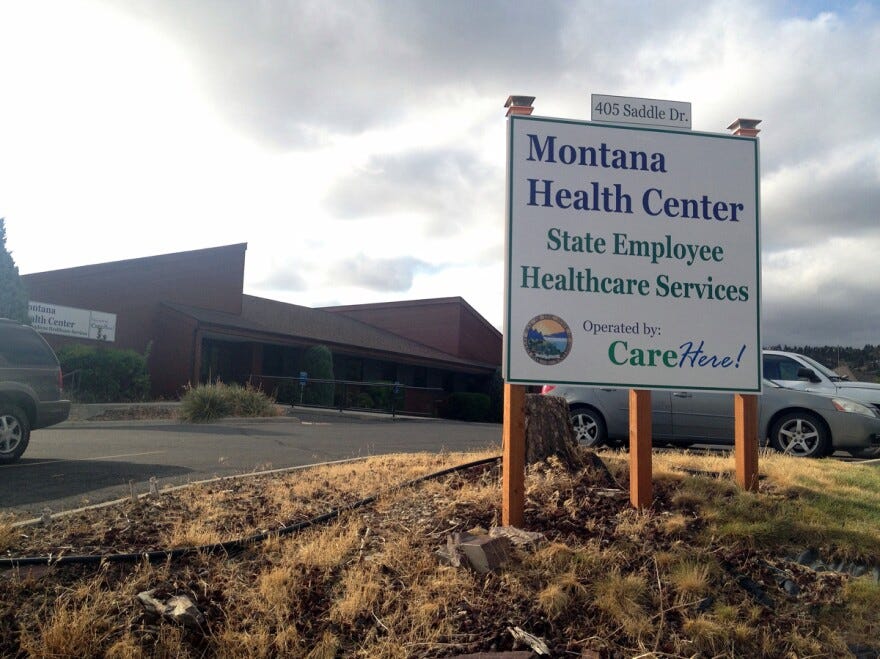It's long, it's complicated, and Marjorie Taylor Greene (and probably most people she works with) hasn't read it. Let's not be one of those people. Here is a simplified version of a very complex, and very dangerous bill, that's easy to read and something we can all understand. Please share with friends and family. Thank you.
TITLE XI -- COMMITTEE ON WAYS AND MEANS, "THE ONE, BIG, BEAUTIFUL BILL"
PART 3 - INVESTING IN HEALTH OF AMERICAN FAMILIES AND WORKERS
110201 - TREATMENT OF HEALTH REIMBURSEMENT ARRANGEMENTS INTEGRATED WITH INDIVIDUAL MARKET COVERAGE
Section 9815 of the Internal Revenue Code of 1986 is amended to change the current health reimbursement arrangement (HRA) with new permitting regulations, and renames the policy as "Custom Health Option and Individual Care Expense (CHOICE)," which is meant to "bring more flexibility and customization to employer-provided health benefits." However, employees will lose their premium tax credits offered through the Affordable Care Act (Obamacare), which can result in higher out-of-pocket and overall healthcare costs.
110202 - PARTICIPANTS IN CHOICE ARRANGEMENT ELIGIBLE FOR PURCHASE OF EXCHANGE INSURANCE UNDER CAFETERIA PLAN
A "cafeteria plan (Section 125)" is an employee-sponsored benefit plan that allows employees to obtain pre-tax benefits like health insurance and retirement contributions. Section 125 is amended so that employees enrolled in a CHOICE arrangement can use a salary reduction to pay for health plan premiums purchased through the Health Insurance Marketplace. While this, again, may bring more flexibility, employees will run the risk of forfeiting unused funds at the end of the plan year.
110203 - EMPLOYER CREDIT FOR CHOICE ARRANGEMENT
Small-business employers (50 or fewer employees) who participate in the CHOICE arrangement will receive a $1200-per-employee credit for the first year and $600 for the second year. However, leaning heavily into just Individual Coverage Health Reimbursement Arrangements (ICHRAs), which allow employers to provide tax-free reimbursements to employees, you run the risk of limiting accessibility to quality healthcare by skewing prices and leading to greater systemic issues.
110204 - INDIVIDUALS ENTITLED TO PART A OF MEDICARE BY REASON OF AGE ALLOWED TO CONTRIBUTE TO HEALTH SAVINGS ACCOUNTS
Section 223 is amended to state that seniors over 65 who still go to work and are eligible for Medicare Part A--which covers inpatient care, nursing homes, hospice (end-of-life) care, and some health care--can contribute to a Health Savings Account (HSA) as an add-on to your High-Deductible Health Plan (HDHP). Parts B, C, and D cannot.
110205 - TREATMENT OF DIRECT PRIMARY CARE SERVICE ARRANGEMENTS
Section 223 is further amended so that individuals with HDHPs can enroll in Direct Primary Care (DPC) arrangements--which allows them to pay a flat monthly fee to their primary care provider, bypassing insurance--and use their HSAs to cover those DPC fees. However, DPCs only cover routine checkups and basic lab work, not major medical events. Therefore if they transfer out of an HDHP to a DPC, they may end up with astronomical out-of-pocket costs.
110206 - ALLOWANCE OF BRONCE AND CATASTROPHIC PLANS IN CONNECTION WITH HEALTH SAVINGS ACCOUNTS.
Section 223 is further amended so that all bronze and catastrophic health plans--low monthly cost, high out-of-pocket deductibles and copayments--can contribute to an HSA. However, this will disproportionately benefit high-income households, ignoring those who need care the most.
110207 - ON-SITE EMPLOYEE CLINICS
Section 223 is further amended to allow individuals who use worksite health clinics--which offer significant medical benefits for free or reduce cost--to contribute to an HSA, something the IRS wanted to avoid because it defeats the purpose of HSAs for paying high deductibles before your insurance kicks in.
110208 - CERTAIN AMOUNTS PAID FOR PHYSICAL ACTIVITY, FITNESS, AND EXERCISE TREATED AS AMOUNTS PAID FOR MEDICAL CARE
Section 223 is further amended to allow HSAs to pay for health and fitness fees up to $500/year for individuals and $1000/year for families. However, what is considered "health and wellness" is undefined and would require extensive documentation for coverage.
110209 - ALLOW BOTH SPOUSES TO MAKE CATCH-UP CONTRIBUTIONS TO THE SAME HEALTH SAVING ACCOUNT
Section 223 is further amended to allow HSA-eligible spouses age 55 or older to contribute to the same HSA account, rather than separate accounts. There is some confusion, however, as to how the IRS would attribute the 6% excise (goods, services, and activities) tax on excess contributions that are combined.
110210 - FSA AND HRA TERMINATIONS OR CONVERSIONS TO FUND HSAS
Section 106 is amended to allow individuals to transfer the balance from Flexible Spending Arrangements (FSAs)--a "pre-tax benefit account that allows employees to set aside money from each paycheck for qualified medical and dependent care expenses”--or Health Reimbursement Arrangements (HRAs)--employer-funded health benefits that reimburse employees for qualified medical expenses--into an HSA when enrolling in an HDHP-HSA. But anyone who does not have an HDHP will lose access to a pre-tax HSA.
11211 - SPECIAL RULE FOR CERTAIN MEDICAL EXPENSES INCURRED BEFORE ESTABLISHMENT OF HEALTH SAVINGS ACCOUNT
Section 223 is further amended to allow any qualified medical expense (QME) within 60 days prior to establishing an HSA to be eligible. However, if a QME occurs prior to commencement of HDHP it will not be covered.
110212 - CONTRIBUTIONS PERMITTED IF SPOUSE HAS HEALTH FLEXIBLE SPENDING ARRANGEMENT
Section 223 is further amended to allow an individual to be eligible for an HSA even if their spouse is enrolled in a Flexible Spending Arrangement (FSA). This could lead to a lot of confusion, especially in older patients, when it comes to tax penalties and misuse of funds.'
110213 - INCREASE IN HEALTH SAVINGS ACCOUNT CONTRIBUTION LIMITATION FOR CERTAIN INDIVIDUALS
Section 223 is further amended to double the maximum contribution for HSAs to $8600 for individuals making under $75,000/year, and $17,100 for families making less than $150,000/year. The expansion of HSAs could potentially crowd out other healthcare programs, disadvantaging lower- and middle-income households, and benefitting those in a higher tax bracket.
110214 - REGULATIONS
This section gives the Secretary of Treasury (currently Scott Bessent) and the Secretary of Health and Human Services (currently Robert F. Kennedy Jr.) the right to make and enforce rules pertaining to this portion of the Big Beautiful Bill.
If you would like to read the bill yourself, click the link below.
The Big, Beautiful Bill
Ellie is an author, editor, and owner of Red Pencil Transcripts, and works with filmmakers, podcasts, and journalists all over the world. She lives with her family just outside of New York City.












Thank you for helping to summarize how this bill will hurt all Americans
This is really important and real.